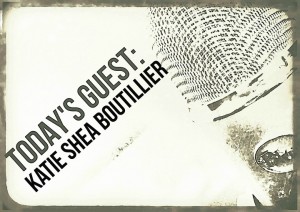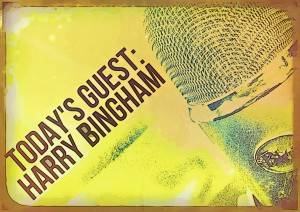Agents
This post is not about what content to include in a query letter, it is about how it should ‘sound’–the professional tone the letter should take. It discusses how to address an overburdened agent, editor, or publisher in a manner that makes them consider you a potential business partner, not a supplicant, a novice, an egomaniac, or desperate. That increases the chances that your query letter will actually get read, perhaps even all the way through.
In my day job, I work with a researcher who gets dozens of unsolicited email requests daily—for a job, for a position, for help, for collaboration, for reviews, for submissions, for purchasing equipment, for endorsements, for public appearances. While these inquiries are not quite the same as author queries, after wading through mountains of these unsolicited requests on a daily basis, I’ve developed a short checklist about what to do and what not to do in basic letter-writing terms to keep your message from getting immediately rejected. If some of the suggestions I am about to offer seem commonsense, or even ludicrously obvious, all I will say is that I have abstracted all of the examples of what not to do from actual received inquiries.
Put Yourself in Their Shoes:
The goal of the query letter is not to tell the addressee what you want or need; the goal of the query letter is to convince the addressee why they might want to work with you. Don’t write about how badly you want to be a writer/make a living as a writer/become a bestseller/change the direction of literature. Lots of us want that (LOTS!). Stating it in a query letter simply puts extra social pressure on the reader, which does not increase the desire to continue reading.
First Sentences/Paragraphs.
The decision of whether or not to read a letter all the way through happens within seconds. The opening should sing, better than the fat lady ever did, and in your voice. The first sentences determine whether any more of the letter gets read. The first paragraph establishes whether you have done your research, are professional, would be someone interesting (and sane), someone who might be a good collaborator, and whether you can pitch your work, not your dreams.
Read More
Today’s guest is Katie Shea Boutillier who has been a literary agent with the Donald Maass Literary Agency since 2011. She is the Rights Director handling the agency’s translation and audio rights, and selected film/TV and electronic rights. In addition, Katie focuses on her own client list of smart contemporary women’s fiction/book club; edgy/dark realistic YA; commercial-scale literary fiction; and celebrity memoir. She looks for projects with the perfect balance of plot and emotion. Katie loves novels that seek big truths, touch on important social issues, and explore unique family dynamics and unlikely friendships. She is a cum laude graduate of Marist College.
Connect with Katie on Twitter.
What I’ve Learned in the Last 4 years as an Agent
Last week marked my 4-year-anniversary with the Donald Maass Literary Agency . . . and a lot has happened. First, I’ve become the agency’s Rights Director, closing over 70 deals to-date. I’ve hit two agent milestones: held my first book auction and closed my first six-figure deal. While all along, I’ve become a wife and a mom.
With each passing year there have been beautiful moments, hardships, celebrations, and frustrations. Being an agent is challenging. I think we can all agree. We are advocates. We are set out to show the industry what we believe will work in today’s competitive market. We want others to hop on board with us, put a price tag on it, and give the author a chance to gain an audience. And it’s not easy. Our industry is constantly changing. But that’s no excuse. We must catch the wave of change and continue to ride. We must learn how to maneuver challenges. Learn what works and what doesn’t. Because at the end of the day, this is a business. And in every business, success is achievable. Focus on your strengths and defeat your weaknesses. Continue to be inspired.
The material I send out to editors must speak for itself. I must push my clients to the furthest limit when it comes to editorial. The stronger the material, the larger the advance. The bigger the buzz. The more copies sold. The more chance of longevity in a publishing career. The concept must attract a major audience, and it must feel different.
Read More© iStockphoto.com
Earlier this year, at an online forum for writers that I frequent, I watched a familiar scenario play itself out. A new member joined the forum, full of excitement (and not a small amount of hubris) about the novel he’d just completed. As he posted his early attempts at a query letter for others to review and critique, two things quickly became clear:
The first one is not necessarily a bad thing. We should be excited about what we’ve written. And we should believe in the literary merit of our work (but not to the extent that we let our egos blind us to the possibility of improving our work).
It’s the second thing that can be the real killer, and yet it’s so common. Many new writers assume the way to write their first book is to simply sit down and start typing. On one hand, this sounds wonderful, and artistically pure. But on the other, imagine applying that logic to some other large task. If you wanted to build a house, and you had no background in construction or architecture, would you just grab some boards and nails and start hammering? Or would you perhaps want to put some planning into the project first?
Over several days and numerous threads on that forum, I watched a painful but increasingly familiar cycle unfold, as this new writer came up against some of the harsh realities of writing and selling commercially viable fiction. So, to borrow from the Kübler-Ross Model (AKA the five stages of grief), I thought I’d share my observations with you, and see if perhaps any of these stages sound familiar.
1. Denial
What do you mean my 375,000-word opus is too long to be marketable?! And what’s this “genre” of which you speak? I refuse to limit my creativity by trying to confine my work within a single easily identifiable genre! And why on earth should I have to bother with writing a query letter? Can’t I just call up one of the top agents and hire her – after all, she works for me, right?
It quickly becomes clear when a writer hasn’t done much (or any) homework on how the publishing business works. And when the harsh realities of this business begin to reveal themselves, some writers are not exactly open to the information.
“To Declare Your Story’s Intent”
There are things important to you. You hurt. You know stuff. I don’t. You see things that I cannot…You have everything you need, including the courage to declare your story’s intent.
— Donald Maass, Writing 21st Century Fiction
Not for nothing am I looking forward to the November 3-7 Writer Unboxed “Un-Conference” in bewitching Salem, Massachusetts. The final day, a Friday, as you might know, is given over to our good WU colleague Don Maass, who’s going to stand his 21st Century Fiction concepts on their feet and explicate them in a daylong seminar.
This material, which appears in Chapter 8, is some of the best of the entire book. For me, it’s the heart of what his subtitle describes as “High Impact Techniques for Exceptional Storytelling.”
Your novel definitely is about something, and that something is sharply defined, it’s just that you’re not letting yourself see and commit to it…Take a stand. Decide what’s important, what hurts, what you know that your readers don’t, what it is that people (including your characters) urgently need to see. That’s your missing focus, the refining fire that will turn the ore into steel.
It’s a careful line Maass walks here. Partly an answer to the question of what has become of literary fiction today, 21st Century Fiction insists on, maybe demands, an author’s awareness of what he or she is doing in a book. But it never urges preaching, lecturing, haranguing, or — forgive me — “man-splaining” the work or its mission to the reader.
And this is not only difficult for even the most skilled and exacting of novelists, it turns out. It’s also fiendishly tricky for many publishing-community wonks whose pleasure it is to guess and predict and define and decry where the industry! the industry! is going in its sometimes unseemly stagger through the digital determination of its future.
This, too, is storytelling.
Debates in this community of pundits tend to break out, rash and rash-like. What seemed a productive day spirals down into a sighing scrimmage of comments on a blog post. Here come the opinion-slingers again — God forbid they sit one out — rather sadly advancing a tiny turf warfare that can keep them from seeing new techno land-grabs much like the ones they missed years ago.
But once in a great while, the debate turns on itself. The discussion is about the discussion. It can be in such moments that we learn the most.
When it happens, it’s a public edition of the private challenge Maass hands to the author who’s lost his way.
As we stumble into one of these moments in the community’s circular conversation, the digital diaspora of book publishing’s energies is clearer. It’s more worrisome, too, maybe. Clarity does that. In a world of arts gone to mobile devices and a tradition of letters gone to Reply All, obfuscation can be a comfort.
Nevertheless, yesterday, Thursday, just such a moment arrived. While many in the Writer Unboxed community dislike paying attention to the “high-impact storytelling” that goes on as their industry tries to redefine itself, I believe wearing those blinkers is a terrible mistake. I think you need to monitor and […]
Read MoreWhen I chatted with Teri a few months ago about this post, I wanted to tackle the question of money and advances and marketing dollars. I was feeling frustrated that certain publishers continued to make seven figure offers on debuts which no doubt continued to take the wind out of the sales of every other book placed in the same publishing season as said book. Why put all your eggs in one basket? Clearly you don’t have a crystal ball to tell you that this one book is THE book that’s going to make it, so why not spread the wealth around a little more evenly?
But the more I thought about it, the more I realized that that’s not totally a fair lament, certainly not for me, the agent, to make. Part of the reason these deals ratchet up into the seven figures is that agents are able to auction books up to that price in a bidding war. I am not innocent of this. I once had an editor say during a best bids auction that he was going to be really mad if he ended up paying way more than he should. He even added that it would hurt the publication. Well, yikes. I responded, I think fairly, that I didn’t have a gun to his head and that he should pay what he thinks it’s worth. But I do think he makes a good point. The whole set up of the auction and competition can lead some publishers (not all) to overpay. All to say that it’s not the big bad publisher that is entirely to blame for my initial frustration.
The general unspoken belief is that if your publisher pays more money for a book, they will inevitably put more marketing muscle into it. But in my own experience, I’ve seen things play out much differently.
Read MoreYou’ve revised your manuscript, sent it out to beta readers, revised again, and now it’s cards on the table time. You’re bringing your book to that fancy conference that’s coming up and shelling out the cash for a session with an agent. But how do you make the most of your 15 minutes of professional attention? How do you even choose which agent to meet with?
There’s no magic password or handshake that will guarantee you a successful meeting — if there was, I promise I’d be sharing it here. The good news is, if you’ve persevered to this stage, you already have the skills to maximize your chances. Hard work and preparation may not sound flashy, but they’ll take you far. Ready? Here are a few strategies I’ve found helpful:
[pullquote]Remember that agents are people too — they grow and change with time, just like everyone else.[/pullquote]
Read More
Today I want to talk about the literary agent’s role, not just in selling an author’s book, but in shaping their career. It’s a more nebulous part of the job description, beyond the editing, negotiating and contract work that comprises the nuts and bolts of the job. I’ve also found it to be both the most exciting and the hardest part of what I do.
I love thinking alongside an author about the direction in which they want their career to go. Thinking long term is an important part of the initial conversation an author should have with their agent as you want to be on the same page, and while of course that path isn’t set in stone, it’s a good idea for an author to have a general vision which she can share with her agent at the beginning.
I still believe in the old-fashioned way of growing an author–book by book, review by review, and fan by fan. And to that end, an agent’s job really begins after she’s helped edit the book and placed it with a publisher. It’s her job to then foster a relationship between the author and the editor, and in turn that editor’s publicity and marketing department, which means making introductions, setting up meetings at the appropriate time before publication, and actively participating in the outreach (either blurbs or advance reviews/conferences/festivals/film contacts/bloggers etc) along the way.
With long-term thinking in mind, an agent also has to work strategically alongside the author about what book two (or three or four) is going to be. That can sometimes involve a tough-love conversation when an agent doesn’t think that follow-up book is strong enough. I once heard an editor say (rather glibly, I might add) that everyone can write one good book but it’s the ones who continue to write better and better books that separate the good from the great. I don’t think that’s the case. I certainly can’t write one good book and I am guessing neither can she (those that can’t, teach and all that), but it is something that writers struggle with.
Read MorePhoto by emdot
Today’s post is by Brandi Bowles, a literary agent at Foundry Literary & Media, who represents a wide range of fiction and nonfiction authors.
In fiction, she is actively seeking high-concept novels that feature magical, psychological, or scientific themes. She prefers a contemporary, real-world setting, well-developed characters, and dialogue that’s just a little smarter than you hear in real life.
From the beginning development stages to the submission process, Brandi works hand-in-hand with each author to find the right strategy and approach for their work, with the goal of landing the ideal publishing partner. Beyond publication, she continues to works with authors to find new opportunities for their books and brands.
Her goal is always to establish an atmosphere of transparency, so authors know they have an advocate they can trust.
She says,
I’ve long been a supporter of de-mystifying the publishing industry. I believe our relationships with authors only improve when they understand and appreciate what we do. There is no magic phrase we use to open the gates of publishing, only hard work. That includes years of networking, studying the industry, honing our tastes, and figuring out how to best position our authors.
Follow Brandi on Twitter.
First Line of Defense
Writers always want to know: How do I find an agent? I get it; I know how important it is, and how arduous the process can seem. But whenever I hear writers refer to agents as the “gatekeepers,” I become a little bit guarded. I see the analogy, but a good agent is so much more.
The truth is, outside of career guidance, editorial work, writing advice, matchmaking, and selling, agents are the only people that can protect you when the publishing process goes awry. And it happens more than you might think.
When Good Book Deals Go Bad
I always celebrate when I close a deal for an author, whether it’s a six-figure bonanza or a small advance for a worthy, hard-working client at the right house. But I’ve learned that even the prettiest, most bow-tied deals can go sour. It’s a dirty secret that books get canceled for all sorts of reasons before they are published. There is the rare case of true “unacceptability” (in most publishing contracts, if the material isn’t satisfactory the publisher can cancel). But often the inner machinations of the publisher/imprint play a role.
The first time I had a contract cancelled for “unacceptability,” the imprint in question was shuttered just one day after cancellation. Highly suspicious. Another project, bought at auction, had been written with close direction, and the manuscript pre-approved in stages by the editor. We were told the MS had been accepted, but then two higher ups read and had divergent opinions on the material—this one disliked for one reason, and that another. The publisher got cold feet and tried to cancel, without providing an opportunity for a revision.
For agent and author, this was a five-alarm fire, and it was only through a mix of persuasive argument, a dozen phone calls, and strategy—namely, a complete reorganization of the book—that I kept that project on their list.
Read MoreI have a confession. When it comes to art or entertainment, I don’t like categories.
It wouldn’t occur to me to put the books, music, or art that I like into any category more specific than “stuff I like.” But I realize most of the world doesn’t think that way.
And the publishing business definitely doesn’t think that way.
So today I’d like to share some thoughts about how fiction is categorized, raise some concerns about the obstacles that these categories (or genres, in publishing parlance) can present, and explore how to make these categories work in your favor.
Why genre matters
Whether you’re pursuing conventional publication, or looking into self-publishing, you need to be aware of genre – and its importance to you as a writer. To an agent or editor, identifying your book’s genre helps them determine if and how they can sell your book.
Please notice the “if” in the previous sentence. If what you’ve written is difficult or impossible for agents or editors to categorize, you’re going to have a really, REALLY hard time getting them to go to bat for your book. Similarly, if what you’ve written falls into a genre that the agent doesn’t represent, or one that the editor doesn’t want or need in her catalog, then you’re in a “do not pass go, do not collect $200” scenario.
Don’t freak out about this; just do your homework. It’s not hard to figure out which genres specific agents represent, and paying attention to what kind of books the various publishing houses specialize in is good basic intel for an aspiring writer to collect.
On the upside, clearly identifying your genre can help agents and editors, by giving them a vision of how your book can be sold and marketed. (If “sold and marketed” seems backwards to you, I’m referring to selling the book to a publishing house, and then marketing it to readers upon publication.)
[pullquote]Clearly identifying your genre can help agents and editors, by giving them a vision of how your book can be sold and marketed. [/pullquote]
If you’re self-publishing, genre is still important, but for different reasons. While you won’t have to deal with the “gatekeeper” function that agents and editors serve in conventional publishing, you’ve still got to put real thought into how to market your book. Amazon only offers you a limited number of keyword “tags” to apply to your book, and those tags are very important in making your book visible to the right readers.
Most successful self-published authors do a fair amount of experimenting and strategizing when it comes to tagging their books, aware that it can make a big difference in their sales. Although Amazon’s tags are not limited to just popularly accepted literary genres, their function is still the same: to identify what kind of book you’ve written for somebody who has not yet read it.
Why genre can be a problem
Okay, those are some reasons why genre is important. But genre can also be an enormous pain in the ass. Here are four reasons why:
1. Genres are anything BUT universal.
Read some literary blogs, and you’ll see an amazing variety of genres discussed. You’ve got chick-lit, thriller, fantasy, coming-of-age, post-apocalyptic, romance, dystopian, young adult, new adult (which makes me wonder, is there an old adult genre?), science […]
A number of people have asked me to talk about what an author should do to raise awareness for their book for WU’s Inside Publishing month. This was asked in the context of “…if there are not a lot of marketing dollars in house to support said book,” but I think the answer to what you should do to support your book is the same for authors with huge marketing plans and those with modest ones.
Honestly, there is rarely the kind of money or manpower that you want/expect/desire in any publication so it’s always good to be prepared to do some heavy lifting. In fact, many of my authors, upon their second book’s publication, have said to me that they wished they’d had a better sense of the playing field the first time around as they would have done more, but that they also had to go through it to get to that kind of understanding. So, I am going to try to outline what you can do to be your best advocate in the hope that it sheds some light.
Be a squeaky wheel. I am a big believer that it never hurts to ask. You may have been turned down for certain marketing dollars, but those budgets are decided many months out. Closer to publication, it’s worth going back and asking for other things like online advertising, a blog tour or a flight to a well-attended conference or seminar. Hopefully you will be working closely with an agent who can help you decide what makes sense to push for. While you may not get everything you ask for, you are not going to get anything if you never try, right? So squeak away!
Make your editor your ally. I can not stress this one enough nor tell you that this is the first thing all editors say to me off the record when I ask them what they wish they could tell authors. Your editor is your in-house champion and your lifeline to all the major players within the publishing house (marketing, publicity, publisher, sales) and if you sabotage that relationship, you are really hurting your chances as he or she will be less likely to go to bat for you.
If your fiction has a non-fiction hook, publish as many op-eds as you can.
Read More- « Previous
- 1
- 2
- 3
- 4
- Next »













